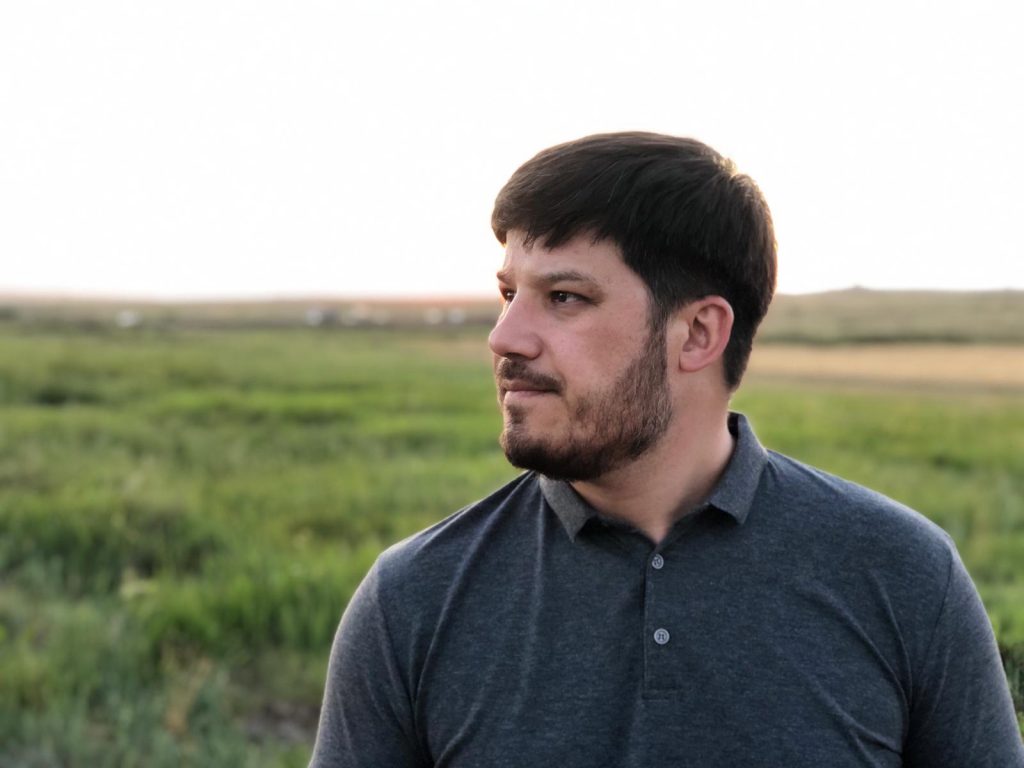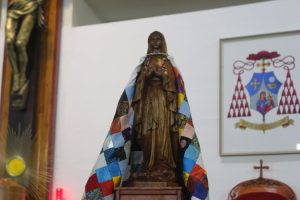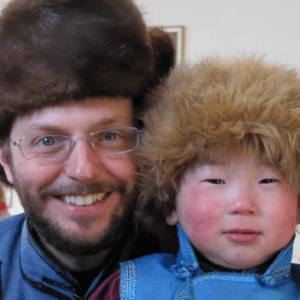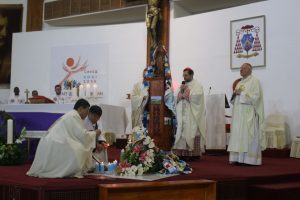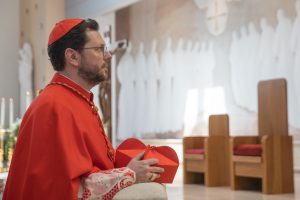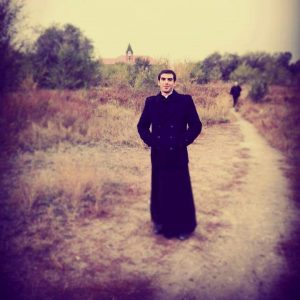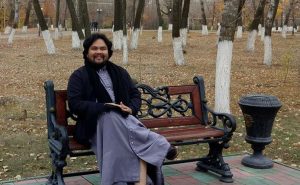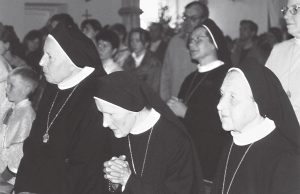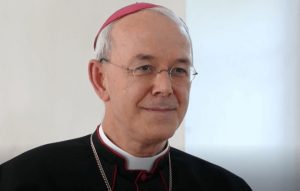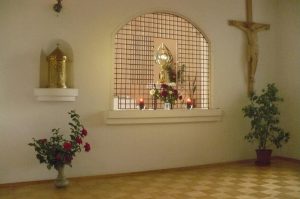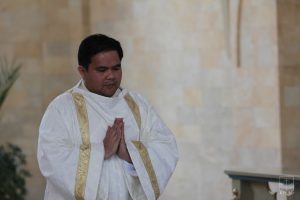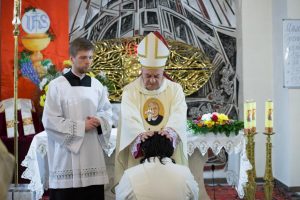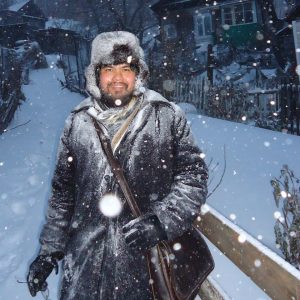O. Ruslan Rakhimberlinov – has been serving as a priest for 10 years. He is the first priest with Kazakh roots, and one of the first graduates of the Higher Theological Seminary of Karaganda. At the moment, he is studying Canon (church) Law in Rome for the second year.
- Childhood dreams. When I was in middle school, like all the boys of my age, I wanted to get a good job and a driver’s license as soon as possible. At that moment I was thinking about a fire service or even a police service, but God had other plans…
- Ideal. On my choice of vocation, I was greatly influenced by examples of the lives of such saint priests as Don Bosco and Maximilian Kolbe. I wanted to be like them, but over the years I realized that we don’t have the right to imitate another’s destiny, because everyone has his own unique way of holiness. In 1999, I was baptized with the name Maximilian – in honor of St. Maximilian Kolbe, and a year later entered the seminary, combined with graduating from evening school.
- Languages. Unfortunately, during my childhood, in the family, we did not use the Kazakh language often, but now I want to fix that. I have been studying in Italy for the second year, and I already speak Italian quite well, and I am able to take exams. Now I have my own methodology for learning a language in order to learn a subject; first of all, you need to love it. I promised myself that when I return to Kazakhstan in a year, I will take up the studying the Kazakh language and learn to be fluent in it!
- National identity. I am a patriot, and although several nationalities are combined in me, I feel myself to be primarily Kazakh. I love the land of Kazakhstan, our people, I love the steppe. Because of my duties , and because of friendships, I have visited various beautiful countries, I saw a lot of different things. In Kazakhstan, everything is different, somethings are better, somethings are worse, but everything mine – native. As you might know, in the famous film it was said: “I found out that I have a huge country, and every blade of grass, every forest, every spikelet in the field, every river, the blue sky, it’s all mine – it’s all dear to me, it’s my homeland, I love everyone in the world!’’.
- Roots. On vacation I like to go to my grandmother in village. She is 96 years old. I saw she had different books, I think she reads both Christian and Muslim prayers. When my grandmother was younger, our relatives took her to the mosque, now it’s difficult for her. I love simplicity in the village, you go out of the house, you start walking, and there – the steppe and low hills. I rest there for real – my soul rests.
- Freedom of religion. I think the nation should not be equated with religion, the Russians with Orthodoxy, the Poles and Germans with Catholicism, and the Kazakhs with Islam. In this approach, there is a danger of narrowing the experience of the search for God in the national framework. A man must have freedom in the search for the Absolute, regardless of the nation he belongs to and in what traditions he was brought up. After all, God always gives us free choice.
- Islam in Kazakh way. I know Islam as such in Kazakhstan. It seems to me that Islam in Kazakhstan is distinguished by some special simplicity. Maybe our Muslims do not pray as often as prescribed, do not go to the mosque every Friday, but they put in the foreground and cultivate the simple human virtues, such as understanding, compassion, respect, openness, and I like it.
- Spirituality. I would not call a Kazakhstani, brought up in the Soviet Union, atheized, a religious person, but yes, spiritual. By religiosity, I mean ceremonialism and ritualism, everything superficial, external. Yes, necessary, but not the main thing. And spirituality is when a person searches for something, or Someone who is superior to him. When a person acquires material wealth, he seems to have everything, or much of this wealth, alas he feels the abyss inside, which, as St. Augustine said, only God can fill. It seems to me that in Kazakhstan we are more spiritual than religious.
- Testimony. As the Pope Paul VI said, the modern world primarily needs witnesses, not preachers. And the last evidence, as you know, is the evidence of bloodshed, and we know from history that such evidence leaves an indelible mark. Evangelization can manifest itself through mercy for the sick and needy – here, we can cooperate with other religions, for example, with Islam, but the testimony should not be limited to charity. Of course, we, as priests, are called to preach, but it’s not enough to talk about God’s love from the pulpit, to go out into the streets and shout about His mercy also makes no sense. First of all, testimony is necessary, not simulated, not exalted, missionary work should be manifested in ordinary everyday life, in a simple, I emphasize the word simple, honest adherence to the vocation. Our Christian life should bear the features of fidelity, naturalness, simplicity. This is better than 1000 words spoken about God. People perceive the visible more than the listening. Words must be visible in deeds, deeds must speak.
- The future. I don’t know what the future awaits our country, but I hope it will be calm, lyrically expressed – Kazakhstan will be “under God’s attention”. I hope that God, as before, will create the opportunity to find Him in these conditions and give a testimony of life tothose people whom we meet on our way.
- Nostalgia. When a person is deprived of something, he realizes the value of what he is separated from. I miss Kazakhstan, people close to me, parishioners, especially those parishes where I have been. It reassures that one more year remains. I miss our varied cuisine. There is good pasta, delicious pizza, coffee, wine, beautiful nature, but not enough of what I have been accustomed to since childhood. I miss our nature, its peculiar beauty. I miss severe Kazakhstan winters; I do not have enough frost to hear how the snow crunches. I miss the steppe. If you look carefully, at each time the steppe is its own, special. Most of all I like the spring steppe. I love its air, its freedom. In the spring, the steppe sighs.
Text: Xenia Gotovskaya
